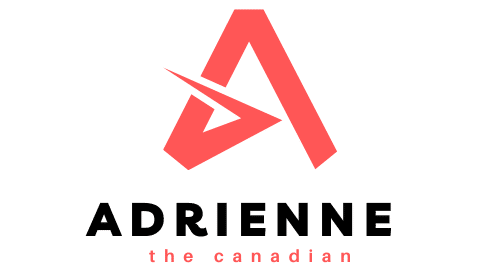How Can Cognitive Training Enhance Decision-Making Speed in Ice Hockey Goalkeepers?

Let’s talk about hockey, a high-intensity sport that requires equal parts physical prowess and mental strength. The players are not just athletes; they are scholars of the game, continually learning and evolving. Today, we will delve into a critical aspect of a hockey player’s training: cognitive development. This is especially vital for goalkeepers, who directly face the onslaught of the puck time and again.
We will explore how cognitive training aids these players in enhancing their decision-making speed, and consequently, their performance. We will explore credible sources such as Crossref and PubMed to understand this better. Let’s get started!
En parallèle : How to Develop High-Performance Sports Analytics Algorithms?
The Crucial Role of a Goalkeeper in Hockey
We cannot begin our exploration of cognitive training without first understanding the importance of a goalkeeper in a hockey game. In the high-paced world of ice hockey, the goalkeeper plays a pivotal role. Predominantly positioned at the net for most of the game, these players are the last line of defense. They face an onslaught of pucks, rapidly making split-second decisions that can make or break the team’s performance.
A goalkeeper’s position reveals the immense physical and mental demand of the sport. The constant visual tracking of the puck, the rapid reaction times needed to block the shots, and the mental tenacity needed to stay focused are just a few examples. Intelligym refers to the mental aspect of this role as the cognitive abilities of the player, specifically their decision-making speed.
Cela peut vous intéresser : What’s the Best Way to Train Spatial Orientation for Competitive Divers?
Understanding Cognitive Skills in Hockey
Cognitive skills revolve around knowledge, attention, memory, and the ability to process information quickly and effectively. In the context of hockey, these skills are paramount. A goalkeeper must possess a keen understanding of the game, a sharp memory of the opposing team’s strategies, and the ability to quickly process and react to the fast-paced movement of the puck.
Visual skills have a huge role to play in this cognitive process. They help players quickly track the puck’s movement and gauge the trajectory of shots. This is where cognitive training comes in, designed to enhance the visual and cognitive skills of players, thereby improving their performance.
The Impact of Cognitive Training on Decision-Making Speed
Time is a critical factor in hockey, and for a goalkeeper, every millisecond counts. The time between spotting the puck’s movement and deciding the best course of action is precious. The faster a player can process this information and make a decision, the better their performance.
Cognitive training focuses on enhancing this very aspect. It aims to speed up a player’s reaction time by improving their visual and cognitive skills. This includes exercises that stimulate quick decision-making under pressure, helping the player adapt to the pressures of the game.
Studies from reputable sources like Crossref and PubMed have shown that cognitive training can significantly improve a player’s decision-making speed. These improvements can result in a more honed game strategy and better overall performance.
Incorporating Cognitive Training into Regular Practice
As vital as cognitive training is, its integration into a player’s regular training regimen is equally crucial. How should a team go about this? Firstly, the training should be customized to suit the player’s needs. The focus should be on enhancing their cognitive abilities while ensuring it complements their physical training.
A mix of traditional and modern techniques can be beneficial. Traditional methods include activities that enhance memory and attention, like memorization games and puzzles. Modern techniques, on the other hand, often involve technology. Virtual reality, for example, provides a realistic environment where players can practice and perfect their strategy.
Cognitive Training: A Game-Changer for Hockey Players
Cognitive training in sports is not a new concept, but its potential in ice hockey is immense. As we’ve discussed, goalkeepers, in particular, stand to benefit significantly from this training. The ability to make quick decisions under pressure, to predict the trajectory of a shot, and to remain mentally resilient under stress are invaluable skills on the ice rink.
Cognitive training helps sharpen these abilities, making it a game-changer for hockey players. It’s about more than physical strength or dexterity; it’s about building a strong, agile mind that can keep up with the swift pace of the game. This could be the key to enhancing a goalkeeper’s performance, thus giving the team an edge over their competition.
As more teams realize the importance of cognitive training, we’ll likely see more emphasis placed on it. It’s an exciting development in the world of sports and one that promises to take the game of hockey to new heights.
Cognitive Training Techniques and Tools for Goalkeepers
Integrating cognitive training into an ice hockey goalkeeper’s routine is a multifaceted process. It’s not just about adding a few exercises to their training schedule; it’s about understanding the player’s needs and designing a program that suits them. A variety of techniques and tools are available to facilitate this, ranging from traditional exercises to state-of-the-art solutions like virtual reality and Sense Arena.
Traditional exercises rely on enhancing existing cognitive skills. For instance, memory games can help improve a goalkeeper’s ability to remember rival teams’ strategies. Puzzles can enhance attention to detail, a key skill in tracking the puck’s movement. These exercises can easily be incorporated into a player’s regular practice, and they add an element of fun to the training.
Modern techniques involve more advanced technology and often provide a more immersive experience. Virtual reality, for example, is a promising tool. It allows goalkeepers to practice in a simulated environment, mimicking the pressures of an actual game. This realistic environment can greatly enhance their decision-making speed and reaction time.
Sense Arena is another tool that has gained recognition. It’s a platform that provides cognitive and skills training through virtual reality. With various drills and scenarios designed specifically for hockey players, it can be a useful addition to a goalkeeper’s training regimen.
Another modern tool is Vizual Edge, a performance training program that focuses on enhancing visual skills. It helps players evaluate their visual skills and provides exercises to improve them. Given the visual tracking required for a goalkeeper, this could be a beneficial tool.
Cognitive Training: The Future of Ice Hockey
As our understanding of the human brain and cognitive functions expands, so does the potential for cognitive training in sports. Ice hockey, a game that demands both physical prowess and mental agility, stands at the forefront of this revolution. The role of cognitive training, particularly for goalkeepers, is becoming increasingly recognized.
Research from Google Scholar, Crossref Google, and PubMed Crossref shows that cognitive training can significantly improve a goalkeeper’s decision-making speed. Techniques ranging from simple memory games to virtual reality simulations can enhance this ability. Furthermore, platforms like Sense Arena and programs like Vizual Edge are pushing the boundaries of what’s possible in cognitive training.
As more teams incorporate cognitive training into their routines, we expect to see a shift in how the game is played. A goalkeeper who can make quick, accurate decisions could be the difference between a win and a loss. In a sport where every second counts, cognitive training could be the key to unlocking unprecedented performance levels.
The future of ice hockey looks promising, with cognitive training taking center stage. It’s not just about physical strength or skating skills anymore. A strong, agile mind could be the ultimate game-changer. As we continue to explore and innovate in the realm of cognitive training, one thing is certain: the game of hockey will never be the same.
In conclusion, the cognitive training of ice hockey goalkeepers is a crucial aspect of their training. By incorporating these techniques into their regular practice, goalkeepers can significantly enhance their decision-making speed. This will inevitably result in improved performance and could give their team an edge in the competition. With cognitive training, the future of ice hockey looks brighter and more exciting than ever before.
